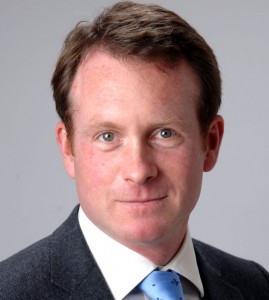Welcome from Chris White MP Vice-Chair APPG Poverty
Posted on 08 Sep 2013 under Latest News
Despite the growth of our economy over the past two hundred years, poverty remains with us. Although the forms may have changed, many thousands of people across our country still struggle to pay their bills, buy food or properly heat their homes.
According to research by the Joseph Rowntree Foundation in 2010/11 20% of working-age adults without children and 24% of working age with children are in poverty. Around 17% of pensioners are also still in poverty and around 2.39m households in England are “fuel poor”.
We should not ignore the significant progress that has been made over the past few decades. The number of pensioners in poverty has fallen substantially and while the number of children in poverty is still too high, numbers have fallen since the early 1990s. However we should not resign ourselves to believing that poverty must always be with us. We can take steps to further reduce the number of people in poverty and the APPG is about supporting a dialogue between policy makers, civil society and experts to achieve that aspiration.
The first step we need to take is to recognise that the nature of poverty has changed in the UK. The majority of working-age adults and children in poverty are now located in working households and are no longer concentrated in areas of social housing but across a variety of communities.
In order to tackle poverty we need to tailor our policy response to meet these new challenges – the most pressing of which is in-work poverty. We work for many reasons, but one of the most important is to be able to afford to look after ourselves and our family. However for many thousands of people finding work is not the end of their relationship with poverty. Since the financial crisis, wages have not risen in line with inflation and many are working in jobs which are low-paid or do not give them the hours that they need. We cannot simply assume, therefore, that reducing unemployment will in itself reduce poverty.
We need to find away to balance the objectives of securing economic growth with providing sustainable employment which will not only enable people to use their talents but also helps to improve their quality of life and to look after their families. This means looking at issues such as the Living Wage and how we can encourage business to work with their employees to reduce some of the costs of employment, such as child-care and transport.
The change in the composition of those who are in poverty, away from those in social housing and towards those in private rented housing always requires us to look at housing. The ‘Right to Buy’ gave many thousands of families the chance to get on the property ladder and boosted the assets of low income families. However a lack of house building both by the public and private sectors means that rents are high and many people cannot afford to buy a home. If we are going to reduce poverty we will need to look at ways that we can make housing more affordable and give those on low-incomes the chance to build up assets which they can then put into retirement or fall back on when necessary.
To achieve real progress on poverty we need to develop a cross-party consensus around the challenges we face and how we can best use the resources of the public and private sectors to tackle it. All parties have unique perspectives that they can bring to the table and the Government need to work with Members of Parliament on both sides of the House so that we build a complete strategy for poverty reduction in the UK.
Building a consensus is also important so that there is long term policy stability. In same way that the post-war consensus enabled Britain to build the National Health Service and other parts of the welfare state and provide stability so that they had the chance to take effect, we need to develop the same thing around poverty. Chopping and changing policies and institution is common with incoming governments, but constant change can stall implementation of good policies and make it difficult to measure the effectiveness of interventions made to reduce poverty.
Reform is needed and we should be bold in developing new ideas and fresh solutions to the problem of poverty. But we should do so in a constructive way that brings all interested parties together and creates momentum behind tackling poverty. Everyone wants to reduce the number of people in poverty and the APPG is here to focus our minds on achieving that objective.
I look forward to working with colleagues on the APPG to help build a consensus around this issue so that we can ensure that reducing poverty remains one of the key objectives of this and Parliaments to come.



Comments